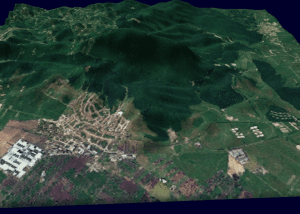|
Emeric Kökényesradnót
Emeric from the kindred Kökényesradnót (; died 1285 or 1286) was a Hungarian baron and soldier in the second half of the 13th century. Family Emeric was born into the ''gens'' (clan) Kökényesradnót,Engel: ''Genealógia'' (Genus Kökényesradnót 1., Dobokai branch) as the son of Mikod (I), whose activity is unknown. He also had an elder brother Mikod (II), whose political ambitions he supported for the rest of his life. Emeric had a son John, who died without descendants by the end of the 13th century. His daughter Catherine married Egidius Monoszló, an influential baron of the 1270s. Career By the early 1260s, both Mikod and Emeric Kökényesradnót were considered important partisans of Duke Stephen, King Béla's eldest son and heir, who administered his provinces in Styria, then Transylvania. Sometime before 1262, Mikod and Emeric were granted Szentmiklós in Torda County along the river Aranyos (Arieș) near Torda (present-day Turda, Romania) by Béla IV. The rela ... [...More Info...] [...Related Items...] OR: [Wikipedia] [Google] [Baidu] |
Conrad Szák
Conrad (I) from the kindred Szák (; died after 1269) was a Hungarian noble in the 13th century, who served as ''ispán'' of Győr County from 1264 to 1267. Family and career Conrad (I) was born into the ''gens'' (clan) Szák as the only known son of Albeus.Engel: ''Genealógia'' (Genus Szák, Várong branch) The kindred possessed lands in Central Transdanubia, primarily in Tolna and Komárom counties, centered around the namesake estate Szák. Conrad had two sons, John (I) and Conrad (II). The Várongi noble family, which became extinct in the first third of the 15th century, descended from John. Conrad is first mentioned by a royal charter of King Béla IV of Hungary in May 1240, when he already served as Cup-bearer of the Queen's Court. The document narrates that when Queen Maria Laskarina gave birth to Stephen, the firstborn son of the royal couple sometime around October 1239, Conrad hurried to the royal court in order to inform Béla IV of the birth of his son. As a resul ... [...More Info...] [...Related Items...] OR: [Wikipedia] [Google] [Baidu] |
Feketehalom
Codlea (; ; Transylvanian Saxon dialect: ''Zäöeden''; ) is a municipiu, city in Brașov County, Transylvania, Romania. Name The Romanian language, Romanian name "Codlea" could be a derivation from the Latin , a diminutive of Latin (edge, rearward); or it could be a derivation from the Slavic languages, Slavic ''kotlík'' ("kettle"), as the ''Măgura Codlei'' (in this reading: "Kettle Hill") looks like a kettle. In Romanian, ''măgură'' means "large hill, mound, forest located on a high place". The hill also provides the Hungarian name of the city, ''Feketehegy'', "Black Hill". The German name's origin is unknown, but there is a theory that it was derived from ''Zeidler'', an antiquated word for "beekeeper". in Duden Wörterbuch (online). Accessed 24 Oct 2023. History [...More Info...] [...Related Items...] OR: [Wikipedia] [Google] [Baidu] |
Jus Patronatus
The right of patronage (in Latin ''jus patronatus'' or ''ius patronatus'') in Roman Catholic canon law is a set of rights and obligations of someone, known as the patron in connection with a gift of land (benefice). It is a grant made by the church out of gratitude towards a benefactor. Its counterpart in English law and in the Church of England is called an advowson. The right of patronage is designated in papal letters as ''"ius spirituali annexum"'' and is therefore subject to ecclesiastical legislation and jurisdiction as well as civil laws relating to the ownership of property. Background In the Eastern Catholic Churches, the founder of a church was permitted to nominate an administrator for the temporal goods and indicate to the bishop a cleric suitable for appointment. In the Latin Church, the Synod of Orange in 441 granted a right of "presentation" to a bishop who had built a church in another diocese and the Synod of Toledo in 655 gave a layman this privilege for e ... [...More Info...] [...Related Items...] OR: [Wikipedia] [Google] [Baidu] |
